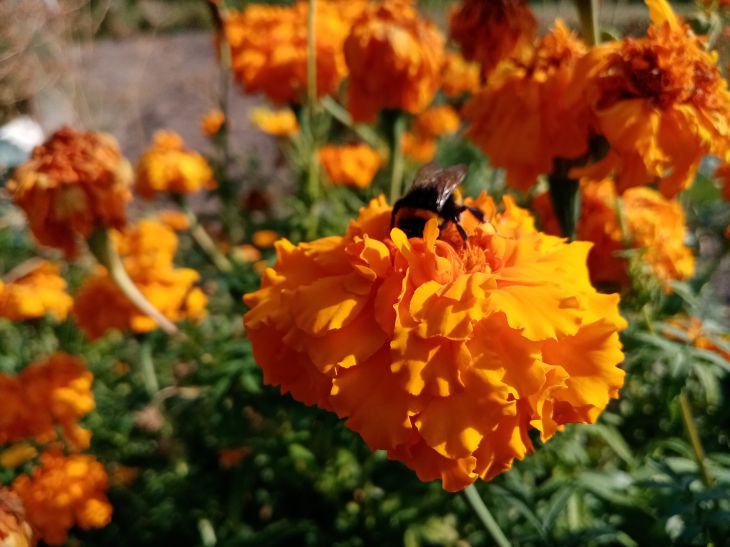Modern gardening increasingly turns to natural methods of plant protection.
Growing marigolds and onions together is an example of a successful plant neighborhood, tested by time and practice.
Anastasia Kovrizhnykh, an expert of the online publication "BelNovosti" - a scientist agronomist and landscape designer, told how to do the right thing.
Favorable neighborhood
Planting marigolds and onions together creates excellent conditions for both plants.
Phytoncides secreted by marigolds repel onion flies and other pests. Root secretions from flowers suppress the development of nematodes in the soil.

Layout scheme
Proper placement of plants in the garden bed plays an important role. Marigolds are planted along the edges of the onion bed or between the rows of onions.
The distance between plants should be 25-30 centimeters to ensure optimal ventilation.
Landing time
It is recommended to plant marigolds at the same time as planting onions or a little later.
The seedling method of growing flowers allows for earlier protection. Seeds for seedlings are sown in March-April, and ready seedlings are planted in May.
Growing conditions
The unpretentiousness of both crops allows them to be grown with minimal care.
Plants prefer sunny places with fertile soil. Regular watering and loosening of the rows promote good development of both onions and marigolds.
Protective properties
Natural repellents contained in marigolds create a protective barrier for onions. The strong aroma of flowers repels not only harmful insects, but also rodents. The complex effect increases the resistance of onions to diseases.
Impact on soil
The root system of marigolds enriches the soil with useful substances. The plants secrete substances that suppress the growth of pathogenic microorganisms. After the end of the season, the green mass of marigolds serves as an excellent fertilizer.
Selection of varieties
Low-growing varieties of marigolds are better suited for the neighborhood with onions. Compact plants do not shade the bed and allow for efficient use of space. Varieties with a strong aroma and abundant flowering are especially valued.
Additional benefits
The bright flowers of marigolds attract beneficial pollinating insects. The decorative appearance of plants decorates the garden and creates an attractive landscape design. Flowers can be used to make bouquets and obtain natural dyes.
For reference
Marigolds are a genus of annual and perennial plants of the Asteraceae family.









